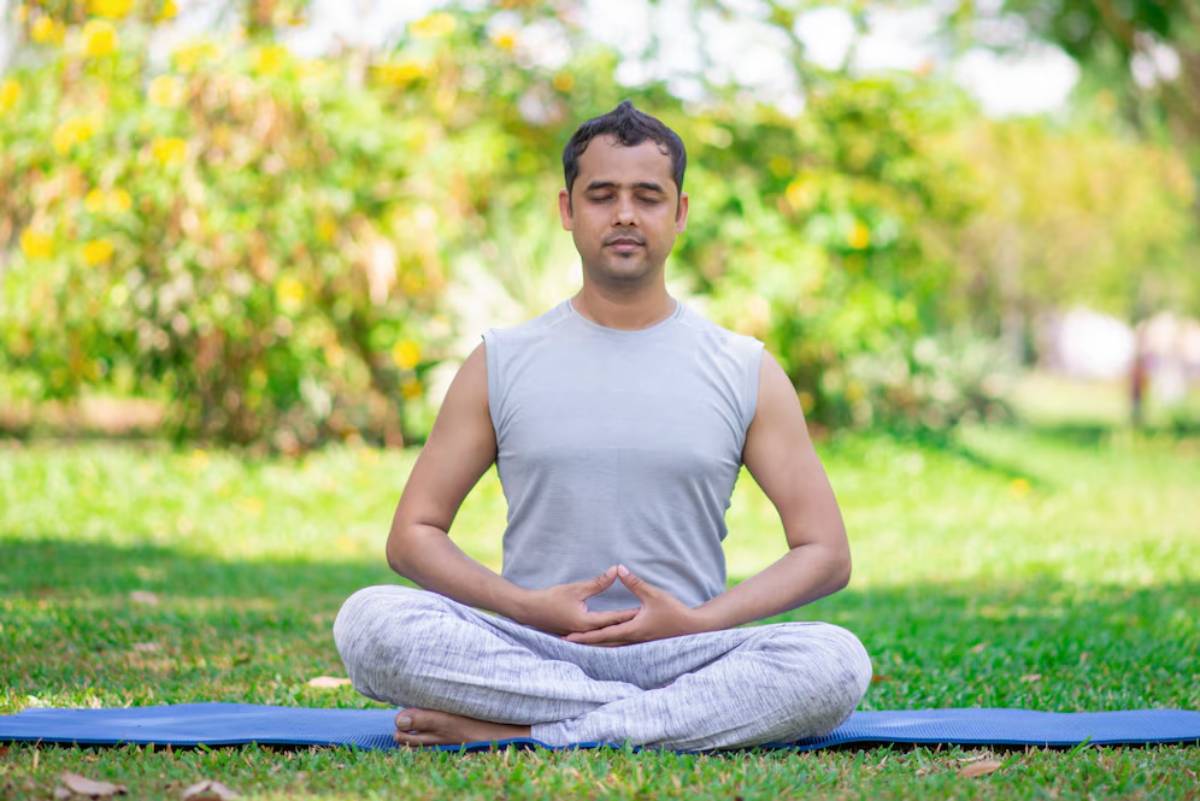The Yoga Blogs

How to Use Yoga to Break Mental Fatigue
Have you ever stared at your screen, unable to think clearly? No matter how hard you try, it can be tough. Mental fatigue is an increasingly common challenge in our busy, always-on culture. The answer might not be another cup of coffee or a quick nap. It could be found in your own body through yoga.
Yoga for mental fatigue is more than just stretching. It blends mindful movement, breathwork, and focus. This revitalizes the mind and body. This guide explains how yoga techniques can boost energy, improve focus, and restore clarity.
Ready to learn how to weave yoga into your daily routine? If so, you’re in the right place to fight mental tiredness.
Understanding the Core: Why Yoga Alleviates Mental Fatigue
The Science Behind Mental Exhaustion
Mental fatigue stems from prolonged periods of cognitive effort without adequate recovery. A study in Frontiers in Psychology finds that mental fatigue affects decision-making, memory, and emotional control.
How Yoga Helps
Dr. Sat Bir Khalsa from Harvard Medical School says that yoga combines breath, movement, and meditation. This mix helps reset the nervous system and fights signs of mental fatigue.”
Yoga activates the parasympathetic nervous system. This system is known as the “rest and digest” response. It helps you relax, boosts oxygen flow to the brain, and balances stress hormones.
Key benefits of yoga for mental fatigue:
- Boosts cognitive function and focus
- Reduces cortisol (stress hormone) levels
- Enhances oxygen and nutrient flow to brain tissues
- Encourages deep relaxation and emotional reset
Quick Guide: Key Practices for Beating Mental Fatigue
- Incorporate energising yoga poses
- Practice mindful breathing exercises
- Use short meditation breaks
- Establish consistent practice routines
- Prioritise restorative poses when needed
Step-by-Step Guide: How to Practise Yoga for Mental Clarity
Step 1: Begin with Centring Breathwork
How to do it:
- Sit comfortably with a tall spine.
- Inhale deeply for 4 counts, exhale for 6 counts.
- Repeat for 2–5 minutes to clear mental fog.
Pro Tip: Visualise inhaling energy and exhaling fatigue with each breath.

Step 2: Activate Energy with Uplifting Poses
Recommended Poses:
- Upward Salute (Urdhva Hastasana): Stretch upwards, lengthening the spine and boosting blood flow.
- Mountain Pose (Tadasana): Ground and awaken your senses.
- Warrior II (Virabhadrasana II): Build stamina, focus, and inner strength.
- Standing Forward Fold (Uttanasana): Calm the nervous system and rejuvenate the mind.
- Camel Pose (Ustrasana): Open the chest and stimulate energy pathways.
Important Tip: Link each movement with an intentional breath for greater impact.
Step 3: Integrate Mindful Pauses
After 2–3 poses, pause in a standing or seated position. Notice how your body feels. Observe your breath and mental state without judgment.
Step 4: Introduce Simple Meditation Techniques
Suggested Practice:
- After your movement session, sit quietly and practise breath awareness for 5 minutes.
- Optionally, repeat a simple affirmation like, “I am energised and clear-minded.”
Pro Tip: Use a timer to avoid clock-watching and deepen relaxation.
Step 5: Finish with Restorative Poses
End your practice with:
- Legs-Up-the-Wall (Viparita Karani): Excellent for reversing fatigue.
- Corpse Pose (Savasana): Let your body and mind integrate the benefits of your practice.
Best Practices & Additional Insights
Prioritise Morning or Midday Sessions
Doing yoga earlier in the day taps into your natural energy. It also helps fight off that afternoon slump.
Keep Sessions Manageable
Even a 10–15 minute yoga session can significantly lift mental fatigue. Focus on quality, not duration.

Combine Yoga with Breathwork
Try adding practices like Kapalabhati (Skull Shining Breath) or Bhastrika (Bellows Breath). They give you an instant energy boost.
Caution: If you have high blood pressure or breathing issues, talk to a doctor before doing any intense breathwork.
Listen to Your Body
Mental fatigue often correlates with physical depletion. Honour your energy levels each day without forcing vigorous activity.
FAQs About Yoga for Mental Fatigue
1. How often should I practise yoga to beat mental fatigue?
Aim for 3–5 sessions per week, even if they are short. Consistency is more effective than sporadic, longer sessions.
2. Can beginners benefit from yoga for mental fatigue?
Absolutely. Basic poses and breathing techniques offer immediate benefits, no matter your experience level.
3. What is the best time of day for concentration yoga?
Morning or early afternoon are ideal, but the best time is whenever you can practise consistently.
4. How soon will I feel the benefits?
Many practitioners feel a sense of mental refreshment immediately. Sustained energy boosts usually emerge after a few weeks of consistent practice.
5. Can yoga replace caffeine for energy boosts?
Yoga may not fully replace caffeine for everyone, but it can help. It boosts energy and focus, reducing the need for stimulants.
Restore Clarity with Every Breath and Movement
Yoga offers a powerful, sustainable way to break free from the grip of mental fatigue. Mix energising poses, mindful breathing, and restorative practices. This can clear your mind’s fog and bring sharp, vibrant clarity.
You do not need to be an expert or devote hours daily. Small, intentional practices done consistently create profound shifts.
Ready to refresh your mind naturally? Start your yoga journey for mental clarity today and feel the difference. Share your thoughts or questions in the comments. Let’s inspire each other to focus and thrive!









